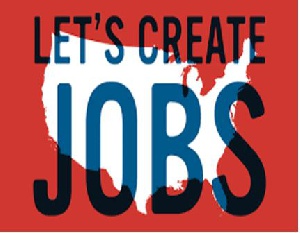One popular saying by my late grandmother was “if you cannot see, at least you can hear.” She said this to admonish us when we refused to take note of things that were happening around us. So, my question to African leaders is, if they cannot see their youth dying across the Sahara and in boats across the Mediterranean Sea, at least can they not hear from those they pay to provide them information?
These young people are not adventurers trying to discover the Sahara or new lands in Europe, they are desperate. There are no jobs and all they hear is their leaders admonishing them to be more entrepreneurial. How can they do so if the necessary environments and opportunities are not created?
Sometimes l wonder if those who lead Africa, truly understand what it is to weld political power. I wish they would be told the truth that, running the affairs of a country is not just being seen in convoys, visiting places to make high sounding speeches and taking the best of all that is available. There is more to it.
Some of us get scared for Africa’s future, especially when certain facts are made known. The African Development Bank (AfDB) says the continent’s population is 1.2 billion and is projected to more than double by 2050, when it will comprise one-fourth of the world’s population. This should set the alarm bells ringing. If we are not able to feed ourselves today, provide shelter, jobs and health care among others, what will be the situation in 2050?
What is more scary about the AfDB’s projection is the fact that, “Africa will remain the world’s youngest region, with the median age of the population under 25 years old.” Again, this means that what we see today with unemployment is going to more than double.
We should not be deceived into thinking that, this young population, this growing working-age population, if properly harnessed, could drive Africa’s economic transformation. The truth is, we are not doing anything and so we should not expect any result. We are only talking and that does not solve problems.
If we cannot help the 420 million youth aged 15 to 35 in Africa today, majority of whom are unemployed, discouraged, or only “vulnerably employed” as the AfDB said, then, we must know that, things can only look worse.
Apart from the AfDB report that is signaling the alarms bells for work to be done to save the continent, there have been other talk in the past. So, l wonder if African leaders listen at all. Two years ago, a group of experts met in the Zambian capital of Lusaka, and published a report that listed what should be done to solve unemployment on the continent.
What l am not sure about is whether our leaders listened to those who parroted the report into their ears. Even if they did not listen, why didn’t they spend some time to read the contents?
The said meeting was organised by the Alliance for a Green Revolution in Africa (AGRA) and the report cautioned that, “Africa will neither solve its chronic food shortages nor its urgent employment challenges without an immediate, aggressive effort to address the series of problems holding back Africa’s under-25 population from joining the agriculture sector.”
This is not new. Our governments have for a long time had some idea, what the problem was but this time, the experts drew their attention to it and went on to take note of the fact that, lack of land, credit, quality farm inputs, machinery and other impediments were preventing agriculture from providing jobs on and off the farm for a youth population that accounts for about 65 per cent of the African population and 19 per cent of the global youth population.
The experts also drew attention to the “low crop yields and poorly developed agriculture businesses that have caused food production to fall behind population growth; and the dim employment prospects for a growing population of under-25-year-olds that by mid-century will exceed the entire population of the United States.” This is a gloomy picture and one would expect that this should have shaken the conscience of our leaders to take action.
President of AGRA, Agnes Kalibata, made a point; “a continent with such vast holdings of arable land and a large and increasingly educated young workforce should be the envy of world.” But, Kalibata, a former Minister of Agriculture and Animal Resources for Rwanda, noted sadly that, “instead, most Africans—including, ironically, millions of our farmers—are relying on imports to feed their families.
And our growing population of young people, who should be a treasured resource for economic growth, are often labelled a ‘ticking time bomb’ for fear their lack of job prospects will generate instability.”
Experts say there are currently, about 226 million people between 15- and-24-years-old in Africa and by mid-century, there could be twice that many. The World Bank has also projected rising incomes in Africa’s rapidly expanding urban centres, generating a consumer food market that by 2030 will be worth US$1 trillion.
This is a market that has been projected to provide a demand to be met by farms and related agriculture businesses located on the continent. But the question is: how can this be done if we do not involve the high unemployed youth in the sector? AGRA and its experts are saying that, “with an abundant supply of youthful labour and an increasing demand for food and farm products, African countries should be able to provide the skills and knowledge young Africans need to realise the many business opportunities in growing, processing and selling the food African consumers demand.”
If African governments listen, they will come to realise that they would be able to provide opportunities for Africans instead of allowing our situation to benefit producers outside of Africa. In addition, AGRA and its experts said, Africans spend more than $60 billion on food imports each year. And on the retail side, European and US food retail giants like Royal Ahold and Walmart are moving into Africa, with their high standards for the quantity and quality of the food products they carry.
We must not allow this to continue forever. We have the skills, the manpower, the resources to produce and process our own food and that is what we should be doing!
To create the enabling condition, AGRA and its experts provided some diagnosis. African governments must change land rights tenure system; provide a mechanism that would make it easy for those who are interested, to access capital and improve the limited access to finance and credit.
In addition, our leaders must find a solution to the inadequate supply of improved farming inputs, such as high-yielding crop varieties developed for local conditions and affordable fertilisers as well as ensure that public and private sector investment in infrastructure essential to agriculture, such as transportation are not just words that our leaders parrot daily: They must walk the talk!
Opinions of Tuesday, 5 September 2017
Columnist: todaygh.com















